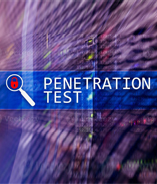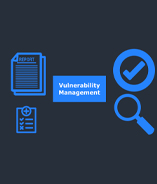courses

An Ethical Hacker is assigned with the responsibility of identifying existing vulnerabilities within an organizational network. This requires possessing detailed knowledge about different scanning tools and techniques such as Nessus for Network Scanning and Invicti for Web Application Scanning. Ethical Hackers proceed with their responsibility of performing hacking attempts in a controlled environment that simulates real-life attacks. The outcome of such efforts results in timely identifying vulnerabilities and assessing security controls. These individuals proceed with assessing existing security policies and configurations. The timely reporting of such weaknesses encourages concerned organizations to proceed with their mitigation of observed weaknesses within their technical infrastructure.

These individuals are responsible for acting as per previous reports generated from vulnerability assessment to secure organizational networks appropriately. This leads Pen Testers to identify potential entry points of malicious attacks within an organization. The Security Auditing responsibility of the Pen Tester relates to assessing existing standards of organizational security with ongoing industry requirements. The Pen Testers are recognized by their capacity to create detailed reports on observed findings about security threats and thereby provide recommendations for remediation of observed threats. The long-term experience of Pen Testers encourages them to participate in client meetings to discuss suitable organizational security recommendations.

The organizational responsibility of a Vulnerability Analyst spans scanning the organizational network to identify security weaknesses. These individuals are further associated with performing effective security audits to ensure relevant organizational benefits. This requires them to be proficient in different compliance standards as per the background operating sector of their employer organization. The proficiency of Vulnerability Analysts in different vulnerability assessment tools such as Nessus and Qualys apart from ability in different scripting languages such as Python and Bash leads them to be appropriately responsible within their employer organization. The consistent gaining of field experience enhances the capacity of these individuals to tackle the toughest cyber security challenges.

The SOC Analysts of an organization are associated with consistent threat monitoring thereby defending an organization from incoming cyber threats. The responsibility of Threat Monitoring leads such SOC Experts to identify potential threats or data breaches within the organizational network. The identification of vulnerabilities within the networks and systems of an organization encourages concerned SOC Analysts to address them suitably. The SOC Analysts are required to consistently participate in security audits of organizations to further enhance their security posture. The possessing of appropriate communication skills by SOC Analysts leads them to collaborate with other cyber security experts within an organization.

The responsibility of an Incident Responder relates to identifying, investigating and mitigating security incidents in an organization. The specific duties of such individuals include Incident Detection and Triage thereby proceeding to Incident Response and Mitigation. The Incident Responder might need to engage in relevant Forensic Analysis and Investigation. The importance of indulging in such activities relates to conducting an in-depth search to determine the potential root cause of a security incident within an organization. The Incident Responders are required to be proficient in collecting and analysing a wide range of evidence such as Network Logs, System Artifacts and Malware Samples from attack sources such as the concerned end-point device.

The roles and responsibilities of a GRC Associate relate to proceeding with the security compliance of an organization from ongoing security standards. Such dedicated roles and responsibilities of GRC Associates within an organization lead to a concerned company adhering to regulatory requirements and thereby effective management of their risks. The GRC Associates tend to recommend robust governance practices to an organization by effective compliance monitoring apart from policy development & implementation. The GRC Associates are required to prepare detailed reports on the compliance status of a company apart from its risk assessments and incident investigations to present to the senior management of a company.

The importance of Forensic Investigator for modern-day organizations relates to their extensive usage of digital devices. This relates to extending the significance of Forensic Investigators from solving crimes to participating in evidence analysis within an organization. The responsibility of a Forensic Investigator relates to collecting digital evidence from a crime scene and thereby maintaining its integrity effectively. This relates to their capacity of maintaining a dedicated Chain of Custody for a concerned piece of digital evidence. Forensic Investigators are required to use a wide range of tools such as Autopsy, Sleuth Kit (TSK) for File System Analysis Volatility for Memory Forensics and Forensic Kit (FTK) Imager for Disk Imaging & Analysis
-
Estimated time to complete
120 + Hours- 20 Weeks -
Weekdays
2 Hours of Class, three days a week -
Weekend
3 Hours of Class,two days a week - 5-6 Months






